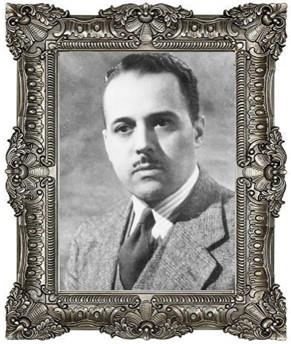- Stubbs Early Education Center
- School History
About Us
Page Navigation
School History
-
 Douglass Stubbs School (1954)
Douglass Stubbs School (1954)Frederick Douglass Stubbs (1906-1947) was born in Wilmington, DE on March 16, 1906. Dr. Frederick Douglass Stubbs was a prominent thoracic surgeon and made important contributions to the treatment of pulmonary tuberculosis. Dr. Stubbs used this education to become a national leader in the care of those suffering from tuberculosis, especially African Americans and people in low-income communities in Philadelphia.
Dr. Stubbs graduated from Howard High School in Wilmington and then spent a post-baccalaureate year at Cushing Academy in Wilbraham, Massachusetts. He attended Dartmouth College, graduating Phi Beta Kappa and magna cum laude in 1927, before going on to Harvard University for his medical education. Stubbs completed his Doctor of Medicine degree cum laude in 1931, becoming the first African American at Harvard elected to Alpha Omega Alpha, an honorary medical fraternity.
Stubbs began an internship at Cleveland City Hospital in July 1931, the first black intern to serve at that institution and one of the first to serve at any American teaching hospital. He married Marion V. Turner, a well-regarded concert pianist whose father was also a doctor in the city. The couple had two daughters, Marion Patricia and Frederica Turner.
For the next decade, Stubbs played an important role in Philadelphia’s public health system. In 1936, Philadelphia Mayor Samuel Davis Wilson appointed him as an assistant surgeon at Philadelphia General Hospital, marking the first time an African American had been on its staff. He also held positions at two hospitals in the city run by African Americans, Douglass Memorial Hospital and Mercy Hospital, eventually becoming the Chief Surgeon at both locations. Stubbs served as Administrator of the Philadelphia Health Center, part of the Department of Public Health, and as a member of the Hahnemann Hospital courtesy staff.
Stubbs garnered many awards and honors during his career. In April 1940, Time Magazine highlighted his work at Douglass Hospital, noting that his groundbreaking use of Thoracoplasty (rib surgery for collapsing the lung) had saved the lives of many patients with advanced cases of tuberculosis. Additionally, Stubbs was a diplomate of the American Board of Surgery and a fellow of the American College of Surgeons, the International College of Surgeons, and the American College of Chest Physicians.
Following a massive heart attack, Stubbs passed away on February 9, 1947.

